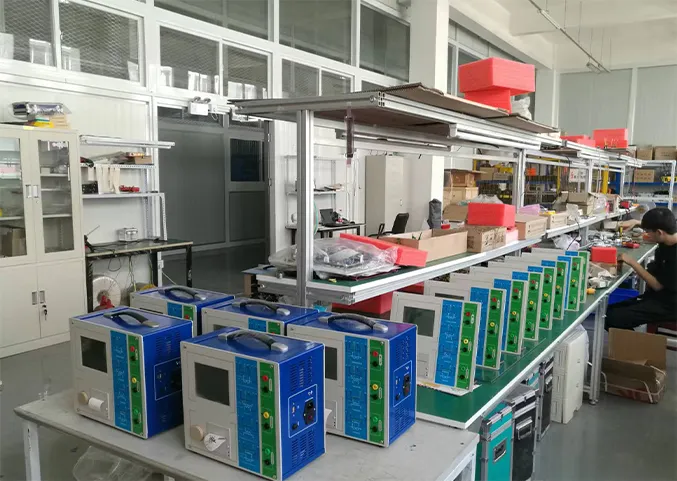 English
English



-
 Afrikaans
Afrikaans -
 Albanian
Albanian -
 Amharic
Amharic -
 Arabic
Arabic -
 Armenian
Armenian -
 Azerbaijani
Azerbaijani -
 Basque
Basque -
 Belarusian
Belarusian -
 Bengali
Bengali -
 Bosnian
Bosnian -
 Bulgarian
Bulgarian -
 Catalan
Catalan -
 Cebuano
Cebuano -
 China
China -
 China (Taiwan)
China (Taiwan) -
 Corsican
Corsican -
 Croatian
Croatian -
 Czech
Czech -
 Danish
Danish -
 Dutch
Dutch -
 English
English -
 Esperanto
Esperanto -
 Estonian
Estonian -
 Finnish
Finnish -
 French
French -
 Frisian
Frisian -
 Galician
Galician -
 Georgian
Georgian -
 German
German -
 Greek
Greek -
 Gujarati
Gujarati -
 Haitian Creole
Haitian Creole -
 hausa
hausa -
 hawaiian
hawaiian -
 Hebrew
Hebrew -
 Hindi
Hindi -
 Miao
Miao -
 Hungarian
Hungarian -
 Icelandic
Icelandic -
 igbo
igbo -
 Indonesian
Indonesian -
 irish
irish -
 Italian
Italian -
 Japanese
Japanese -
 Javanese
Javanese -
 Kannada
Kannada -
 kazakh
kazakh -
 Khmer
Khmer -
 Rwandese
Rwandese -
 Korean
Korean -
 Kurdish
Kurdish -
 Kyrgyz
Kyrgyz -
 Lao
Lao -
 Latin
Latin -
 Latvian
Latvian -
 Lithuanian
Lithuanian -
 Luxembourgish
Luxembourgish -
 Macedonian
Macedonian -
 Malgashi
Malgashi -
 Malay
Malay -
 Malayalam
Malayalam -
 Maltese
Maltese -
 Maori
Maori -
 Marathi
Marathi -
 Mongolian
Mongolian -
 Myanmar
Myanmar -
 Nepali
Nepali -
 Norwegian
Norwegian -
 Norwegian
Norwegian -
 Occitan
Occitan -
 Pashto
Pashto -
 Persian
Persian -
 Polish
Polish -
 Portuguese
Portuguese -
 Punjabi
Punjabi -
 Romanian
Romanian -
 Russian
Russian -
 Samoan
Samoan -
 Scottish Gaelic
Scottish Gaelic -
 Serbian
Serbian -
 Sesotho
Sesotho -
 Shona
Shona -
 Sindhi
Sindhi -
 Sinhala
Sinhala -
 Slovak
Slovak -
 Slovenian
Slovenian -
 Somali
Somali -
 Spanish
Spanish -
 Sundanese
Sundanese -
 Swahili
Swahili -
 Swedish
Swedish -
 Tagalog
Tagalog -
 Tajik
Tajik -
 Tamil
Tamil -
 Tatar
Tatar -
 Telugu
Telugu -
 Thai
Thai -
 Turkish
Turkish -
 Turkmen
Turkmen -
 Ukrainian
Ukrainian -
 Urdu
Urdu -
 Uighur
Uighur -
 Uzbek
Uzbek -
 Vietnamese
Vietnamese -
 Welsh
Welsh -
 Bantu
Bantu -
 Yiddish
Yiddish -
 Yoruba
Yoruba -
 Zulu
Zulu
interfacial tension in transformer oil
Interfacial Tension in Transformer Oil A Critical Parameter for Performance and Longevity
Transformer oil, a crucial component in electrical transformers, serves not only as an insulating medium but also as a coolant. The quality of transformer oil directly impacts the transformer’s performance, efficiency, and longevity. One of the lesser-discussed but critical properties of transformer oil is interfacial tension (IFT). Understanding and managing IFT can be pivotal in ensuring the reliable operation of transformers and minimizing maintenance costs.
Interfacial tension refers to the force that exists at the interface between two immiscible liquids, in this case, transformer oil and water. A lower IFT indicates that the oil is more prone to allow water to mix, which can lead to several adverse effects. Water presence in transformer oil can cause deterioration of electrical insulating properties, promote corrosion in metal components, and accelerate the aging of the oil itself. Therefore, measuring and controlling IFT is essential to maintaining the integrity of transformer oil.
The IFT of transformer oil is affected by several factors, including temperature, the presence of contaminants, and the oil’s chemical composition. For instance, the introduction of polar molecules or contaminants, such as water or metals, can reduce the interfacial tension, making the oil more susceptible to moisture ingress. Consequently, keeping the transformer oil clean and free from contaminants is critical for maintaining an optimal IFT.
interfacial tension in transformer oil

One of the methods used to measure IFT is the Du Noüy ring method, which provides accurate readings that can be correlated to the oil's performance. Regular IFT assessments can help operators identify potential problems before they escalate. For instance, a significant drop in IFT might signal the onset of water contamination, prompting timely interventions to remove moisture and restore the oil's properties.
In the realm of transformer maintenance, neglecting IFT could lead to catastrophic failures. Transformers can experience insulation breakdown due to excessive moisture or contaminants, leading to costly repairs or replacements. Therefore, monitoring IFT regularly is imperative for asset management and minimizing the risks associated with transformer operations.
Moreover, the role of IFT becomes increasingly vital as renewable energy sources and electric vehicles gain traction. As the demand for more efficient and reliable transformers rises, understanding oil properties like IFT will be crucial for future advancements. By ensuring optimal IFT levels, manufacturers can enhance the performance and lifespan of transformers, ultimately contributing to the reliability of the entire electrical grid.
In conclusion, interfacial tension is a critical parameter that influences the performance of transformer oil significantly. Its management plays a vital role in preserving the integrity of transformers, ensuring a steady supply of electricity while minimizing operational costs. Regular monitoring of IFT, coupled with effective maintenance practices, will safeguard transformers against the potential perils of contamination and degradation. As the energy landscape continues to evolve, the importance of understanding and managing transformer oil properties, including interfacial tension, cannot be overstated. By prioritizing these practices, operators can ensure that transformers operate at peak performance, thus enhancing the reliability of energy systems worldwide.
-
Testing Equipment Industry Sees Major Advancements in 2025: Smart & Precision Technologies Lead the WayNewsJun.06,2025
-
Applications of Direct Current Generators in Renewable Energy SystemsNewsJun.05,2025
-
Hipot Tester Calibration and Accuracy GuidelinesNewsJun.05,2025
-
Digital Circuit Breaker Analyzer Features and BenefitsNewsJun.05,2025
-
Benefits of Real-Time Power Quality Monitoring Devices for Industrial EfficiencyNewsJun.05,2025
-
Earth Fault Loop Testing in High-Rise Building Electrical SystemsNewsJun.05,2025



